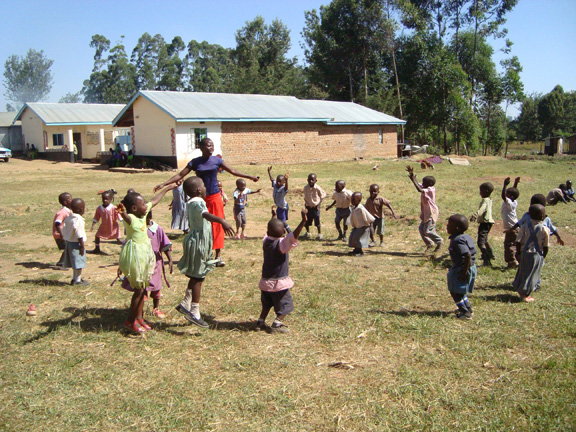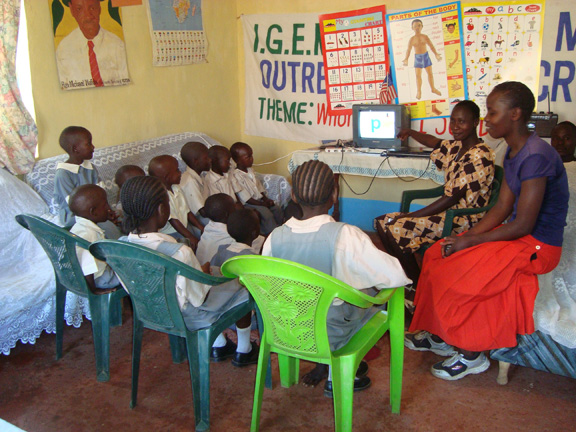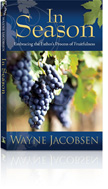 I’m off to Texas tomorrow to spend the weekend with people in the Dallas area, and the early part of the week with a fellowship near Abilene that is sorting out what it means to live relationally. Before I go, I thought I’d leave you with another excerpt from my new book about learning to embrace the Father’s process for transforming us.
I’m off to Texas tomorrow to spend the weekend with people in the Dallas area, and the early part of the week with a fellowship near Abilene that is sorting out what it means to live relationally. Before I go, I thought I’d leave you with another excerpt from my new book about learning to embrace the Father’s process for transforming us.
As I look out my window in every vista I see winter giving way to spring—-the daffodil and forsythia are in bloom, the tender shoots on my vines are just starting to swell. Rarely does my own spiritual season match the one outside. This year it may. I have been through a long winter season spiritually, drawing into a quiet place to let the Father cut back the myriad of opportunities that confronted me to the few, simple things he has asked me to do well. I am more settled on what that is and excited to let go of those things that will be no longer be fruitful for me.
I’m not ready to talk about all of that yet. There’s still some clarity yet to come. But it seems like the perfect time to share with you the next chapter from my latest book, In Season: Embracing the Father’s Process of Fruitfulness. If you haven’t read them earlier, you can read earlier parts of the book here:
• Introduction
• Chapter 1
• Chapter 2.
Chapter 3: The Seasons of the Vineyard
There is a time for everything, and a season
for every activity under heaven:
a time to be born and a time to die,
a time to plant and a time to uproot.
Ecclesiastes 3:1
Who led you to believe that every day should bring a harvest, or that fruitfulness is borne out of days of great joy and ease?
Those who do not understand the life cycle of a vineyard seek to live in the illusion that all days should be the same, that life should be one continuous harvest, or that a life of blessing is a life free of challenge and pain. They grow easily frustrated when their circumstances don’t fit their carefully laid plans, as if God and heaven have conspired against the journey.
But there is no way to comprehend life in a vineyard without an appreciation for the seasons that govern its life and the process God uses to bring a vine to fruitfulness. It takes all four seasons to bring a harvest. One is not more important than the other; each has a purpose in the glorious process. Without the bitter cold of winter, the branch cannot be pruned. Without the hot days of summer, the fruit will not ripen.
My computer works the same whether it’s a January morning or a July afternoon. If I type, it responds. But that’s not true of the grapevines growing on the hillside beyond my window. For them the seasons make all the difference. Winter gives way to an explosion of spring, spring to the overbearing summer, summer to the gentle autumn, autumn to winter’s chill. It has been so since that first dawn and it will continue until the last. Our globe circles the sun with a spectacular tilt that lets the sun be shared in the course of a year over the widest possible area of the globe. This carefully chosen orbit produces in each hemisphere an unending cycle of seasons. As the sun spreads its beams over the Northern Hemisphere we experience the hot days of summer, while the southern part of our globe endures winter. Our days are longer, theirs shorter. But in June the sun begins its southern retreat. Our days diminish in length as theirs grow. As much as people love the days of summer, winter is no less important to the fruitfulness of the vine.
At every moment, what the farmer does in the vineyard is dependent upon these seasons. If he tries to gather grapes in spring he will find only the smallest beginnings of a harvest yet to come. No one will eat these grapes. If he tries to prune in summer he will only destroy the vine he cares for. The seasons control everything the farmer does in his vineyard. Anyone who has walked with God for any length of time recognizes that God works with us at different times in different ways. At some moments our lives seem to bubble over with joy and ease. At every turn we see God’s hand moving, and when we open the Scriptures the words seem to leap off the page with insight and meaning.
At other times the joy we experience is far deeper as we endure painful or distressing circumstances. During such times recognizing God’s voice is not easy. Needs press us from all sides. We may find ourselves repenting far more often than rejoicing. If we don’t understand God’s working in seasons, we’ll make the mistake of assuming that the moments of euphoria are what Christianity is meant to be, and anything less is proof of his displeasure.
Look at the life of Jesus. His life was marked by seasons when he was overjoyed and by those when he was deeply troubled, only able to offer up “prayers and petitions with loud cries and tears.” We see him in crowded moments with great numbers of people clamoring for his attention, and at others alone on the hillside taking time to be alone with his Father. We see him making wine for a young couple’s wedding, and later driving out moneychangers from the temple.
Jesus was not afraid to embrace the changing spiritual seasons of his life and those around him. He didn’t follow a rigid code that could direct him through every circumstance he faced. Rather, he flowed with whatever he saw his Father doing, responsive in each moment to his purpose in ever-changing situations. We would do well to follow his lead. Our spiritual growth demands an ever-changing climate where God’s work is tailor-made to our present circumstances. The sun does not control these seasons. They are controlled by the Father as he spurs us toward fruitfulness. These seasons will bring us a healthy balance of both joyful and challenging moments, of diligent effort and renewing rest.
Each season offers something that the vine needs for its continued growth. Spring brings the needed rain and softened days to help stimulate growth without crushing it in the searing heat. Summer offers enough sun to bring the grapes to maturity. Autumn offers the opportunity for harvest undaunted by rain and a chance for the vine to restore itself before winter. Finally, winter brings a much-needed rest and the opportunity to restage the vine for a new season of fruitfulness. Without these changing seasons there would be no fruit.
The same is true for our spiritual journeys. Fruitfulness emerges out of God’s process to shape our lives for his purpose through our daily struggles. We aren’t always meant to live in the joy of harvest. Fruit matures in the difficult days of challenge and perseverance. If we don’t understand these shifting seasons we’ll find ourselves fighting God’s work instead of embracing it.
Faulty religion teaches people that their efforts can induce God to fill their lives with comfort and favor. If we do good, pray the right way, or work the disciplines hard enough we can get God to do what we want. Without saying it overtly, religion seeks to teach people that they can manipulate God to do their will. Those who believe this lie end up in despair when their circumstances don’t change the way they want. They think either God is failing them or that they just can’t do what it takes to please him.
To engage God’s process of fruitfulness we should spend far less effort trying to change our circumstances; and thus we will find far more freedom in learning to respond to God as we go through them. What he shapes in us becomes far more important than our own comfort. Each season we will receive something needed for continued growth. If we could remain in any one season continually fruit would never grow. By responding to God in whatever season we’re in, we can embrace his work and we can let go of even those things we love when the seasons shift. All of it is part of making us fruitful.
We can enjoy the benefits each season brings and also endure in the challenges for the greater work in our lives. And each has its challenges. The dangers brought on by weeds and invading insects can be overcome, but they cannot be resisted. Without the pruning of winter and the discipline of spring, nothing will grow. The same is true of the long, hot days of summer that ripen the fruit.
Jesus’ example on the cross teaches us that life can be celebrated in the midst of pain. Not all suffering is harmful. It can produce the very fruit that brings great pleasure to the Father. Though he never delights in those things that hurt us, he does realize how necessary some of them are to bring us into the fullness of his glory.
We will begin our journey in spring and continue to walk through the vineyard in its various seasons. As we see what the vine is going through, we’ll look for parallels in our spiritual lives. Seeing God’s hand through these moments will leave us more equipped to recognize his working in us and less anxious trying to get God to change our circumstances to make us more comfortable.
As we begin however, let me highlight one important distinction between seasons in the vineyard and seasons in our lives. In the vineyard, all vines endure the same climatic realities together. They are all pruned in the winter, cultivated in the spring and summer, and harvested in the fall. You will soon discover that this is not true of our spiritual lives. God deals with each branch on the vine individually, giving special care to its own unique growth. And since our seasons are not controlled by external elements of our environment, they may not line up with anyone else around us. I may be enduring the restaging of winter while someone near me is enjoying the fun of harvest.
That is why Scripture warns us repeatedly not to compare ourselves to others, and why when we do, we end up confused (2 Corinthians 10:12). Often when we compare ourselves with someone else, we compare the best thing going on in his life with the worst going on in ours. Instead of looking at the rest and refreshment that God brings through my spiritual winter, I instead focus on the circumstances that surround it: diminished activity and fresh wounds from the recent pruning. When looking at the person who is in the middle of a fruitful harvest, I highlight their joy and acclaim, and forget the risk and cutting that go on in those days as well. What is even more ironic in this scenario is that while a wintering branch may covet the harvest, the branches in the busyness of harvest will long for the peace and serenity of winter!
All of God’s branches would be far better served if they stopped looking around for something better and instead embraced the present work of God.
God is always working. Jesus assured us of that (John 5:17). It may not seem like it sometimes, since we may have missed his hand in the distractions or challenges we’re facing, or because he isn’t doing what we think he should be doing. Instead of comparing or complaining, I am better off looking for the way God is working in my life at that moment. That’s the key to walking with God. He determines the seasons of our lives, such as when to prune, when to feed, or when to harvest our fruit. We are his followers, and he wants to teach you how to follow him.
___________________
This is Chapter 2 of my new book, In Season: Embracing the Father’s Process for Fruitfulness. Copyright 2011 by Wayne Jacobsen and used by permission. Available from Lifestream.org
 During my weekend conversation in Clovis a couple of weeks ago someone shared a thought they had recently read on a blog, though they couldn’t recall where it had come from. I have searched the web to see if I can find anything like it and have not been able to do so. If anyone knows where this came from, please let me know. I always enjoy giving credit where credit is due, but this is too good not to share now. It painted an all-too-accurate picture of the process of institutionalizing and the cost of doing so.
During my weekend conversation in Clovis a couple of weeks ago someone shared a thought they had recently read on a blog, though they couldn’t recall where it had come from. I have searched the web to see if I can find anything like it and have not been able to do so. If anyone knows where this came from, please let me know. I always enjoy giving credit where credit is due, but this is too good not to share now. It painted an all-too-accurate picture of the process of institutionalizing and the cost of doing so.



 How easily Truth gives way to icon! Nearly 2000 years ago outside Jerusalem, at the first crack of dawn the crucified body of Jesus suddenly stirred to life. The Spirit of God not only reanimated his body, but resurrected that body in a completely new form. Jesus became the firstborn of a whole new creation of men and women–transformed from corruptible to incorruptible, from mortal to immortal.
How easily Truth gives way to icon! Nearly 2000 years ago outside Jerusalem, at the first crack of dawn the crucified body of Jesus suddenly stirred to life. The Spirit of God not only reanimated his body, but resurrected that body in a completely new form. Jesus became the firstborn of a whole new creation of men and women–transformed from corruptible to incorruptible, from mortal to immortal.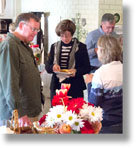 What a weekend! I gathered with some folks near my old stomping grounds, not far from where I grew up and where I served on a church staff for five years in the earliest days of my post-university and just-married life. People came from all over this part of California, including people that were in that fellowship a long time ago, a second cousin I’d not seen since I was 15, people who’ve been through painful betrayals by brothers and sisters they thought were their friends, and those facing some huge challenges with religious voices clouding their freedom to follow what God has already put on their heart.
What a weekend! I gathered with some folks near my old stomping grounds, not far from where I grew up and where I served on a church staff for five years in the earliest days of my post-university and just-married life. People came from all over this part of California, including people that were in that fellowship a long time ago, a second cousin I’d not seen since I was 15, people who’ve been through painful betrayals by brothers and sisters they thought were their friends, and those facing some huge challenges with religious voices clouding their freedom to follow what God has already put on their heart.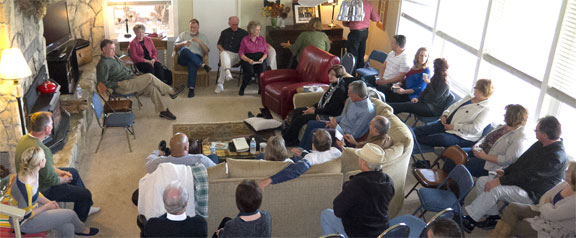
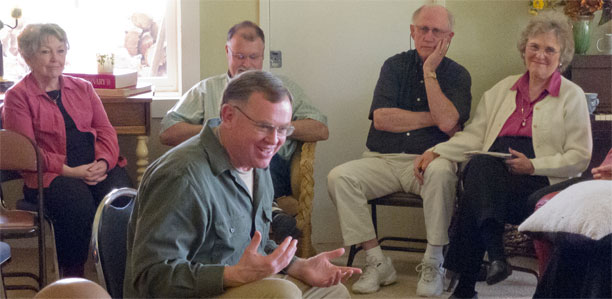
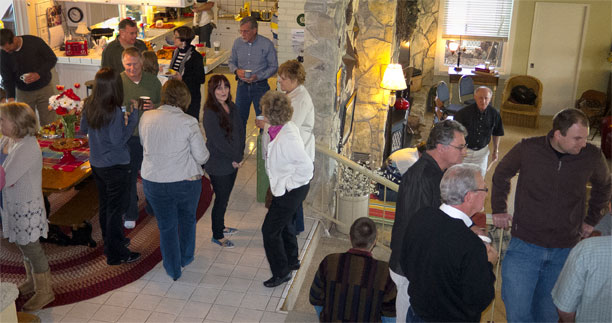
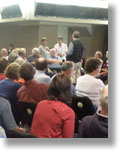 I’m still reflecting with gratefulness on my time in New Zealand. the joy of this trip was found in many of the one-on-one, and one-on-two conversations that I had with so many people as I journeyed around the two islands.
I’m still reflecting with gratefulness on my time in New Zealand. the joy of this trip was found in many of the one-on-one, and one-on-two conversations that I had with so many people as I journeyed around the two islands. I’m off to New Zealand and excited about so many of the conversations I’ll have there with some friends from my previous trip and a whole lot of new folks. I love that at this point in my life I get to be in conversations that matter, with people who care. There is nothing more fun and more productive. I’m excited about this trip for another reason. This begins a task that I sense Father has put before me for the next couple of years.
I’m off to New Zealand and excited about so many of the conversations I’ll have there with some friends from my previous trip and a whole lot of new folks. I love that at this point in my life I get to be in conversations that matter, with people who care. There is nothing more fun and more productive. I’m excited about this trip for another reason. This begins a task that I sense Father has put before me for the next couple of years. Finally, I did a podcast with the
Finally, I did a podcast with the  I’m off to Texas tomorrow to spend the weekend with people in the Dallas area, and the early part of the week with a fellowship near Abilene that is sorting out what it means to live relationally. Before I go, I thought I’d leave you with another excerpt from my new book about learning to embrace the Father’s process for transforming us.
I’m off to Texas tomorrow to spend the weekend with people in the Dallas area, and the early part of the week with a fellowship near Abilene that is sorting out what it means to live relationally. Before I go, I thought I’d leave you with another excerpt from my new book about learning to embrace the Father’s process for transforming us. In the aftermath of of watching THE SHACK project blow-up into a costly legal battle, lots of people have asked me why I continue to collaborate with others. I get asked that a lot as people look through
In the aftermath of of watching THE SHACK project blow-up into a costly legal battle, lots of people have asked me why I continue to collaborate with others. I get asked that a lot as people look through 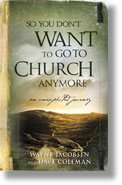 I met with a man last week who wants to turn
I met with a man last week who wants to turn  It is with great joy that I share these pictures with you that I just received from Kenya. These are of the children at the Living Loved Care Center that many of you helped us build over the last few years to help 72 orphans living in a slum find a safe and healthy environment in which to live and learn. I think you can see in the pictures below the joy and celebration that they are experiencing in their new location.
It is with great joy that I share these pictures with you that I just received from Kenya. These are of the children at the Living Loved Care Center that many of you helped us build over the last few years to help 72 orphans living in a slum find a safe and healthy environment in which to live and learn. I think you can see in the pictures below the joy and celebration that they are experiencing in their new location.